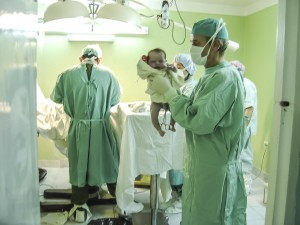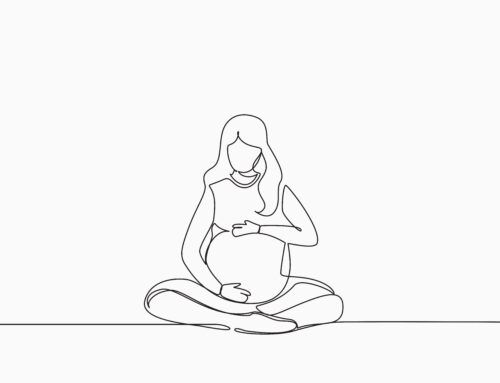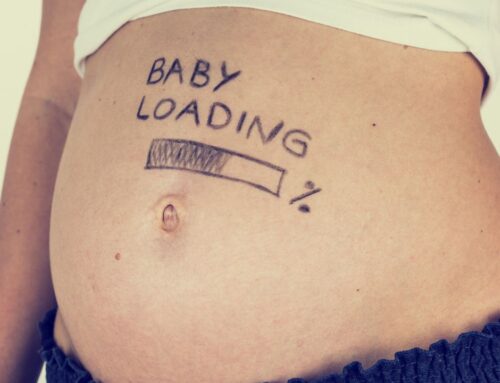Did you know that The American Academy of Pediatrics recommends that you take your baby in for at least nine checkups during the first three years? That is a lot of doctor visits for your baby’s first year. These appointments are essential for your baby’s health as well as your own knowledge as a parent.
It can be tough to remember what each doctor’s visits for your baby’s first year will entail as well as what topics you will want to discuss during that time. This detailed summary of the first 3 years of appointments should help.
Every Appointment Starting at Birth…
Even if your baby is completely healthy, you will be visiting the doctor A LOT in the few years of your babies life. This is because the first two years are a crucial time in your baby’s growth and development and your doctor will want to keep close tabs on your baby’s progress. The American Academy of Pediatrics recommends babies get checkups at birth, 3 to 5 days after birth and then at 1, 2, 4, 6, 9, 12, 15, 18 and 24 months. Below is a compiled list of what the pediatrician will examine during EVERY appointment.
Taking measurements: The doctor will always measure baby’s length, weight and head circumference. These measurements will be recorded on a growth chart, so you will be able to see how your baby compares to other infants his age to make sure there are no signs of problems. Do not expect your baby to be like every other child and do not get overwhelmed or discouraged if your baby is bigger or smaller than average for his age. Every baby will grow at their own speed, the chart is just there to show a general average.
Developmental surveillance: At most visits, the doctor will also make sure baby’s development is on track. They’ll make observations of your child’s behaviors, ask you about baby’s milestones (like sitting up and rolling over) typical to his/her age at the time and ask you if you have any concerns.
Physical exam: Baby will get a head-to-toe exam from the doctor at each visit too — ears, eyes, mouth, skin, heart and lungs, abdomen, hips and legs, and genitalia will all get examined to be sure they look healthy. They’ll also check the shape of baby’s head to make sure it’s rounding out nicely.
Newborn Check Up
This will be the first time that your baby will be examined. Right out of the womb the nurse will take the baby to check on his/her weight, length, and head circumference. They will perform a physical exam on your baby undressed while you are present. This will include an eye exam, listening to your baby’s heart; feeling pulses; inspecting the umbilical cord; and checking the back, hips, and feet. Your baby’s heel will also be pricked for a small sample of blood to test for certain harmful diseases.
While in the hospital, your baby should receive his or her first immunizations, the Hepatitis B shot. Immunizations can protect infants from serious childhood illnesses, so it’s important that your child receive them on time. Immunization schedules can vary, but we will go over when they usually happen later on in this blog.
Topics to inquire about in the hospital
If you are a first time mother, chances are that you will have many unanswered questions once your baby is born, even if you did spend hours/days reading books on what to expect. It is important to take the time while you are still in the hospital to ask any questions or voice any concerns you may have to the nurses or doctors. It may be easier to understand and take in all of the information from a caregiver rather than Google or reading books alone. Here are just a few important subjects you may want to discuss about your baby’s care while in the hospital.
- Feeding: Do not forget to talk to your nurse about the feeding method when you are in the hospital. There should be a lactation specialist by your side when your baby is born as well to help and assist you with breast feeding. Breast milk is the best form of nutrition for infants, but formula also provides the nutrients they need. Newborns should be fed on demand, which will be about every 1 to 3 hours. Formula fed babies take about 1-3 ounces (30-90 ml) at each feeding. Burp your baby midway through a feeding and at the end.
- Sleeping: Although sleeping can vary depending on the baby, a newborn may sleep 18 hours a day or more! Unfortunately, babies can get there nights and days mixed up. Your newborn may wake up often to breastfeed or take a bottle. Breastfed babies usually wake to eat every 1 to 3 hours, while formula-fed babies may sleep longer, waking every 2 to 4 hours to eat. Newborns should not sleep more than 4 hours between feedings until they have good weight gain, usually within the first few weeks. Once your baby is back to his or her original birth weight, doctors will often give the go-ahead to go up to 6 hours in between one of the night feeds.
- Peeing and Pooping: A breastfed baby may have only one or two wet diapers a day until the mother’s milk comes in. Expect about six wet diapers by 3-5 days of age for all babies. Newborns may have just bowel movement a day at first. The bowel movements may be dark and tarry the first few days, and then becomes soft or loose and greenish-yellow by about 3-4 days. Newborns typically have several dirty diapers a day if breastfed and fewer if formula-fed. Hospitals will often provide a chart for you to keep track of how many wet and dirty diapers your baby has each day and doctors will often ask you for this information at your first few appointments.
You will be required to stay in the hospital with your baby for 48 hours if it is a vaginal birth and 96 hours for a cesarean birth, until all of the test results come back normal. This is a great time to ask as many questions as you can and get as much sleep as possible while you are still under the nurse’s care!
What to Expect at Each Doctor’s Visit
3-5 Day Check Up
Baby’s first well-visit appointment will come up quicker than you think. Most parents schedule this visit with a pediatrician either while in the hospital post-delivery or shortly after coming home. Remember that you will be there with your newborn and can be a little overwhelming with all of the paperwork you will need to fill out. Try and print out the paperwork before the appointment and fill it out at home. Occasionally, a pediatrician’s office will have a separate waiting room for newborns, so do not forget to take advantage of that. It is often helpful to make a list of questions that come up during your first few days so you don’t forget to ask your child’s doctor.
1 Month
At your babies one month check up the doctor will do the basic — take measurements, do developmental surveillance, conduct a psychosocial/behavioral assessment and perform a physical exam. Your pediatrician may test baby for tuberculosis (TB), an airborne infection that can cause fevers, a persistent cough, heavy and fast breathing, swollen glands, night sweats, weight loss and poor growth. The test involves your doctor injecting an inactive strain of TB into the skin of baby’s arm. If your infant tests positive, redness and swelling will appear at the site of the injection about 48 to 72 hours later. Baby will get a second dose of the hepatitis B vaccine at either the one-month or two-month checkup. This is another great time to touch base about any additional questions that you may have about your child’s development.
2 Months
During the two month check up the doctor will review the same basics as the previous visit, except this time they will be receiving a lot of shots! Try and bring your babies favorite toy or something to distract them from the shot. Your baby will get a second dosage of the hepatitis B vaccine if he/she didn’t get it at last month’s checkup. They will also get the rotavirus vaccine (RV) in two to three doses between the ages of two months and six months (depending on the brand of vaccine), the diphtheria and tetanus toxoids and acellular pertussis vaccine (DTaP), the Haemophilus influenzae type b conjugate vaccine (Hib), the pneumococcal vaccine (PCV) and the inactivated poliovirus vaccine (IPV). Luckily, doctors can combine some shots so there’s less pricking and hopefully less crying. If you are nursing your baby, nursing before and after shots can help ease the pain and provide comfort for your child.
4 Months
Again, you should expect the same procedure check up— measuring baby, developmental, psychosocial and behavioral observations, and a physical exam. Your baby may receive a blood screening the helps indicate anemia. As far as immunizations, the baby will receive second doses of RV, DTaP, Hib, PCV and IPV. This appointment, you may also bring up solid foods to your doctor. Like we previously mentioned, every baby is on their own schedule but usually a baby will start eating solid foods anywhere between 4-6 months. The doctor may also test to make sure your baby can do a mini sit up, roll over and sit up without support. These tests are just to make sure that your baby is on the right developmental track.
6 Months
At this check up the doctor will first of course undress your baby and do the usually procedure of weighing and measuring your baby. Your baby will receive RV, third doses of DTaP, PCV and possibly Hib. Baby will need a third dose of IPV between the ages of 6 months and 18 months. Baby can receive the final hepatitis B dosage between now and age 18 months. If this appointment falls during flue season, it is also suggested that your child receives the flu shot since it is recommended for children between the ages of 6 months and 19 years old. Expect questions from your doctor such as; how is he/she sleeping? Has your baby started to teeth? What sounds does your baby make? Is your baby eating solid food? How are their bowel movements? Is your baby interested in the world around them? Your baby may also get a lead screening to make sure she hasn’t been exposed to dangerous levels of lead, which can affect her developmental and behavioral growth.
9 Months
At this appointment expect the same procedures — taking and recording measurements, a psychosocial and behavioral assessment, and a physical examination. As far as immunizations go, your baby may receive the final hepatitis B dosage if he hasn’t yet. Baby may also get a third dose of the IPV if he didn’t get it at the last checkup.
12 Months
Happy birthday to your little one! After the normal procedure, your baby will receive the Hib, chicken pox, pneumococcal, MMR and hepatitis A vaccine. The doctor will order a blood test for iron-deficiency anemia and assess your child’s risk of lead exposure and order a blood test to screen for it, if necessary. This is a great time to speak to your pediatrician about a pediatric dentist that they can recommend since you can take your little one to their first dentist appointment once they turn one!
Tip to remember is that these doctors appointments could and should be scheduled ahead of time. Most likely your pediatrician will be extremely busy and if you are particular with what doctor you want to see at the practice, it is important to make these appointments a head of time. It is also essential to remember that not every child needs to go through these immunizations. Even though some daycare centers require the children to be up to date with their vaccines, ultimately you are the parent so you can decide if that is the route you would like to go down!






